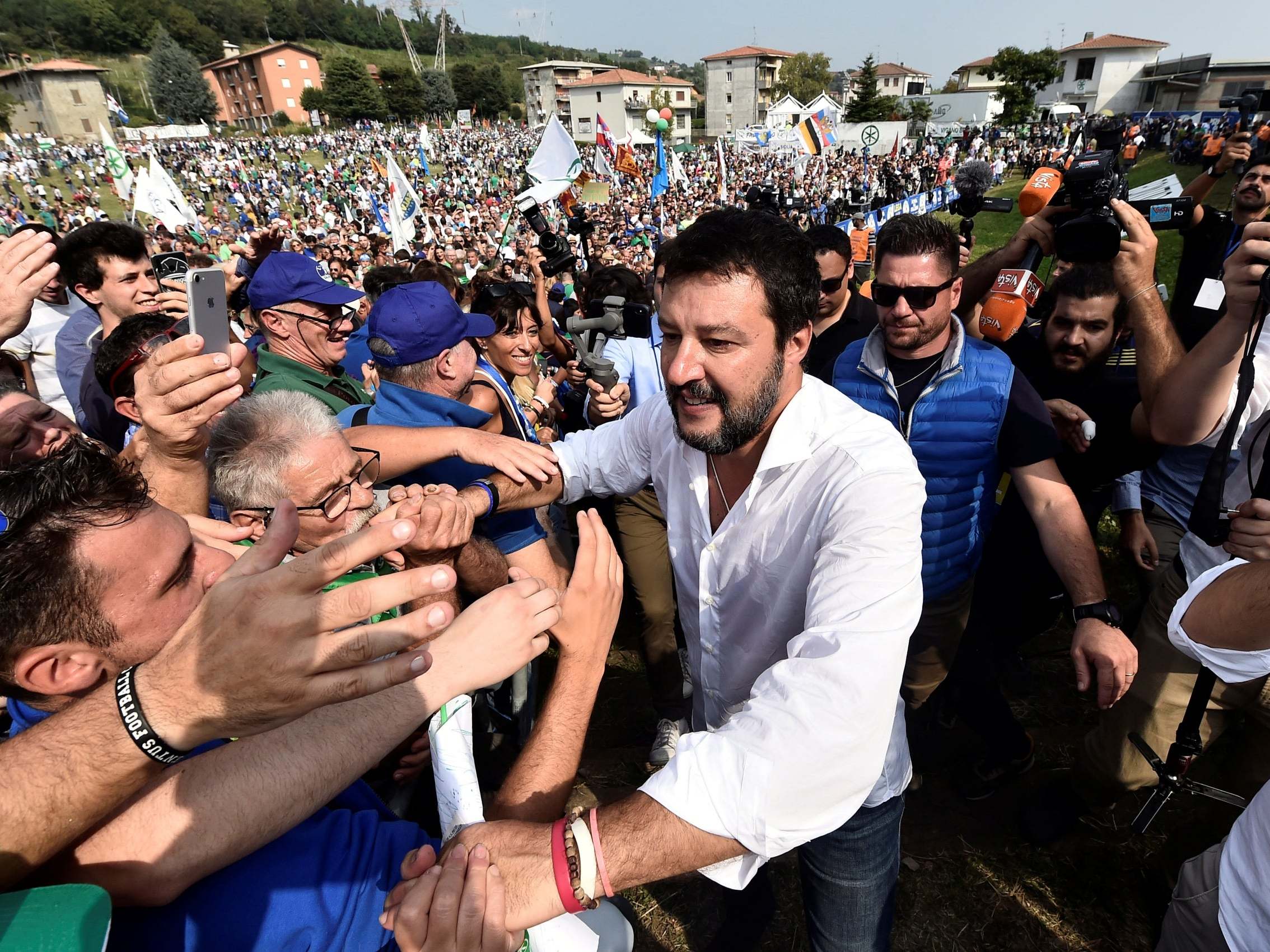Italy is braced for a fascist-style fightback from a humiliated Salvini
This is a wounded beast, hankering for revenge. And the hard right League party has already poisoned the well


Your support helps us to tell the story
From reproductive rights to climate change to Big Tech, The Independent is on the ground when the story is developing. Whether it's investigating the financials of Elon Musk's pro-Trump PAC or producing our latest documentary, 'The A Word', which shines a light on the American women fighting for reproductive rights, we know how important it is to parse out the facts from the messaging.
At such a critical moment in US history, we need reporters on the ground. Your donation allows us to keep sending journalists to speak to both sides of the story.
The Independent is trusted by Americans across the entire political spectrum. And unlike many other quality news outlets, we choose not to lock Americans out of our reporting and analysis with paywalls. We believe quality journalism should be available to everyone, paid for by those who can afford it.
Your support makes all the difference.When a new coalition was established in Italy recently, it followed a political crisis set in motion during late summer by the far-right League. The surprising outcome saw the (now former) interior minister and deputy prime minister Matteo Salvini pushed out of power. He spent this weekend gathering his forces for battles to come.
Italy now has a more progressive coalition in place, including the moderate centre-leftist Democratic Party, and has replaced the most xenophobic cabinet seen in the peninsula since antisemitic laws were implemented in 1938 by the fascist dictatorship. The country is currently rebuilding its traditionally very positive but challenging relationship with the European Union.
Newly consigned to the background, Salvini keeps courting attention with his demagogic propaganda, Euroscepticism and anti-immigrant politics. And the media continue to oblige, playing a huge role in popularising the far right and ethno-nationalist politics in public opinion.
This has clear consequences and lasting outcomes because “the captain” (Salvini’s nickname) is still at the centre of a top-down strategy of legitimisation of extremism, xenophobic hatred and anti-foreigner sentiment. There are already plenty of examples of how this has affected people.
In recent days, a landlord in northern Italy refused to rent a flat because the applicant came from the south of the country. “You can tell that I support Salvini”, she said, “because at the beginning [he] was against all southern Italian people”. “For me southern Italians, blacks and gypsies are all the same, I am 100 per cent racist”. It was, or should have been, an extraordinary statement.
And on Monday, a sports pundit was sacked by regional television after suggesting that no one can stop the former Manchester United and Chelsea player Romelu Lukaku while playing, unless “you have ten bananas to give him”. The defence was that the pundits partner and two little granddaughters are black.
It won’t have surprised the Belgian striker, who joined Internazionale over summer. He has already experienced multiple racist episodes – though they have been downplayed by supporters in order to deny contemporary Italy’s troubles with everyday xenophobia.
This tension between what is happening and how people want Italy to be presented is helping to feed the strategy and ideology of Salvini’s League. At the party’s annual gathering in Pontida on 15 September, activists abused Gad Lerner, a famous Italian journalist, by calling him a “piece of shit” and a “Jew” and telling him he was “not Italian”.
Separately, others talked about the need for a new march on Rome or even the use of bayonets. Another reporter from La Repubblica newspaper was physically attacked. Rather than immediately apologizing for such acts, the party leader, in a perfect fascist as well as demagogic style, denigrated the broadcasters: “they are not journalists, they are more often than not slanderers”, he said.
It is clear that the major player in recent Italian politics is not going to stay nicely in his naughty corner. Scapegoating and a populist communication will go hand in hand.
The League's first act in its campaign to regain power was to delegitimise its former ally, the 5-Star Movement, and the president of the republic, Sergio Mattarella, while calling for new elections. The vice-secretary of the League decried the decision to establish a new, different cabinet as something not far from a “coup” and a “betrayal”, and said the party was ready to start some forms of “resistance”. In the near future, we should expect a further radicalisation of the political agenda.
Local League administrators will likely be encouraged to undermine or defy state central power especially on immigration issues. Given the refugee emergency in the Mediterranean, this will certainly mean stream of anti-immigrant propaganda, with rhetoric marked by slogans such as “our citizens”, “invasion” and “borders”. This will be linked with the now usual exploitation of the Catholic religion.
As with many clerical fascisms of the past, they will pretend to act as the defenders of Christianity and its (moral) values. But all this will come alongside a strengthening of the anti-system connotations of far-right politics. A national demonstration is planned for 19 October and neo-fascist groups are likely to join.
This is a wounded beast, hankering for revenge. And with the fading influence of Silvio Berlusconi, the establishment of a hard-right bloc led by the League is shaping up to be one of the most perturbing political legacies of this era.
Andrea Mammone is a historian of Modern Europe at Royal Holloway, University of London. He is a major expert on the far right, nationalism and European politics.
Join our commenting forum
Join thought-provoking conversations, follow other Independent readers and see their replies
Comments